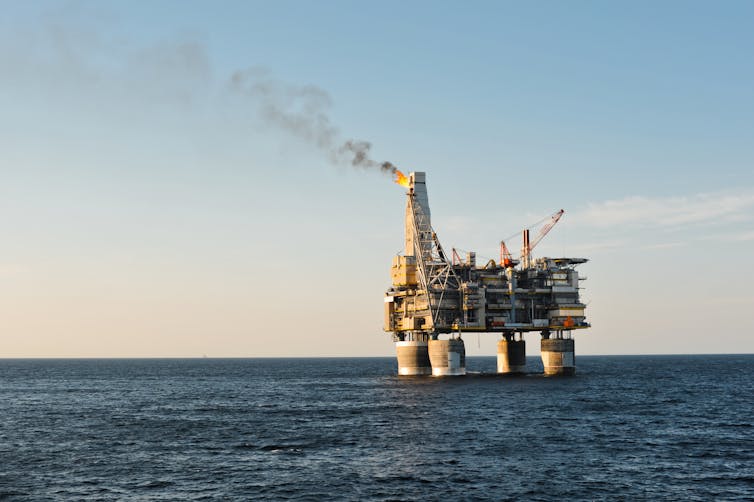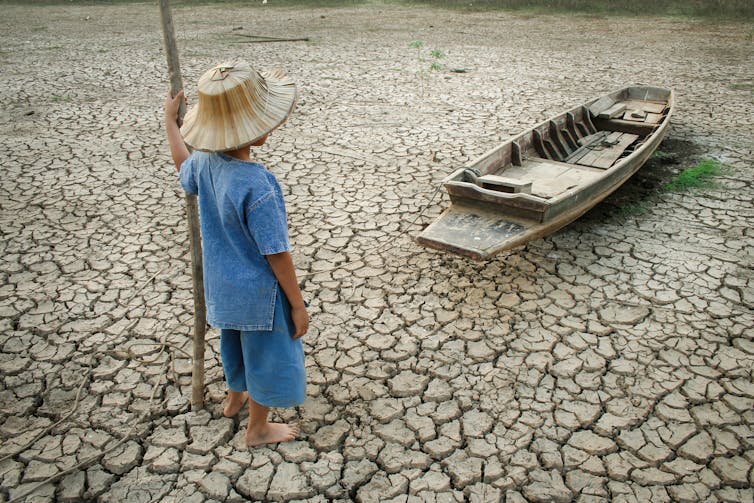What can be done to limit global warming to 1.5°C? A quick internet search offers a deluge of advice on how individuals can change their behaviour. Take public transport instead of the car or, for longer journeys, the train rather than fly. Eat less meat and more vegetables, pulses and grains, and don’t forget to turn off the light when leaving a room or the water when shampooing. The implication here is that the impetus for addressing climate change is on individual consumers.
But can and should it really be the responsibility of individuals to limit global warming? On the face of it, we all contribute to global warming through the cumulative impact of our actions.
By changing consumption patterns on a large scale we might be able to influence companies to change their production patterns to more sustainable methods. Some experts have argued that everyone (or at least those who can afford it) has a responsibility to limit global warming, even if each individual action is insufficient in itself to make a difference.
Yet there are at least two reasons why making it the duty of individuals to limit global warming is wrong.
Individuals are statistically blameless
Climate change is a planetary-scale threat and, as such, requires planetary-scale reforms that can only be implemented by the world’s governments. Individuals can at most be responsible for their own behaviour, but governments have the power to implement legislation that compels industries and individuals to act sustainably.
Although the power of consumers is strong, it pales in comparison to that of international corporations and only governments have the power to keep these interests in check.
Usually, we regard governments as having a duty to protect citizens. So why is it that we allow them to skirt these responsibilities just because it is more convenient to encourage individual action? Asking individuals to bear the burden of global warming shifts the responsibilities from those who are meant to protect to those who are meant to be protected. We need to hold governments to their responsibilities first and foremost.
A recent report found that just 100 companies are responsible for 71% of global emissions since 1988. Incredibly, a mere 25 corporations and state-owned entities were responsible for more than half of global industrial emissions in that same period.

Most of these are coal and oil producing companies and include ExxonMobil, Shell, BP, Chevron, Gazprom, and the Saudi Arabian Oil Company. China leads the pack on the international stage with 14.3% of global greenhouse gas emissions due to its coal production and consumption.
If the fossil fuel industry and high polluting countries are not forced to change, we will be on course to increase global average temperatures by 4°C by the end of the century.
If just a few companies and countries are responsible for so much of global greenhouse gas emissions, then why is our first response to blame individuals for their consumption patterns? It shouldn’t be – businesses and governments need to take responsibility for curbing industrial emissions.
Read more: Climate action must now focus on the global rich and their corporations
Governments and industries should lead
Rather than rely on appeals to individual virtue, what can be done to hold governments and industries accountable?
Governments have the power to enact legislation which could regulate industries to remain within sustainable emission limits and adhere to environmental protection standards. Companies should be compelled to purchase emissions rights – the profits from which can be used to aid climate vulnerable communities.
Governments could also make renewable energy generation, from sources such as solar panels and wind turbines, affordable to all consumers through subsidies. Affordable and low-carbon mass transportation must replace emission-heavy means of travel, such as planes and cars.
More must also be done by rich countries and powerful industries to support and empower poorer countries to mitigate and adapt to climate change.

All of this is not to say that individuals cannot or should not do what they can to change their behaviour where possible. Every little contribution helps, and research shows that limiting meat consumption can be an effective step. The point is that failing to do so should not be considered morally blameworthy.
In particular, individuals living in poorer countries who have contributed almost nothing to climate change deserve the most support and the least guilt. They are neither the primary perpetrators of global warming nor the ones who have the power to enact the structural changes necessary for limiting global warming, which would have to involve holding powerful industries responsible.
While individuals may have a role to play, appealing to individual virtues for addressing climate change is something akin to victim-blaming because it shifts the burden from those who ought to act to those who are most likely to be affected by climate change. A far more just and effective approach would be to hold those who are responsible for climate change accountable for their actions.

